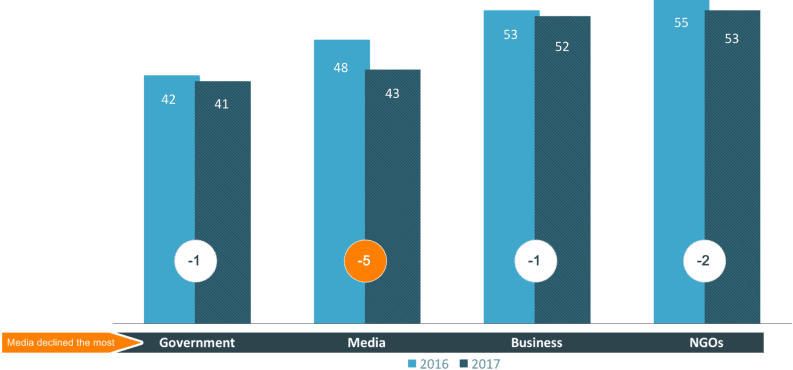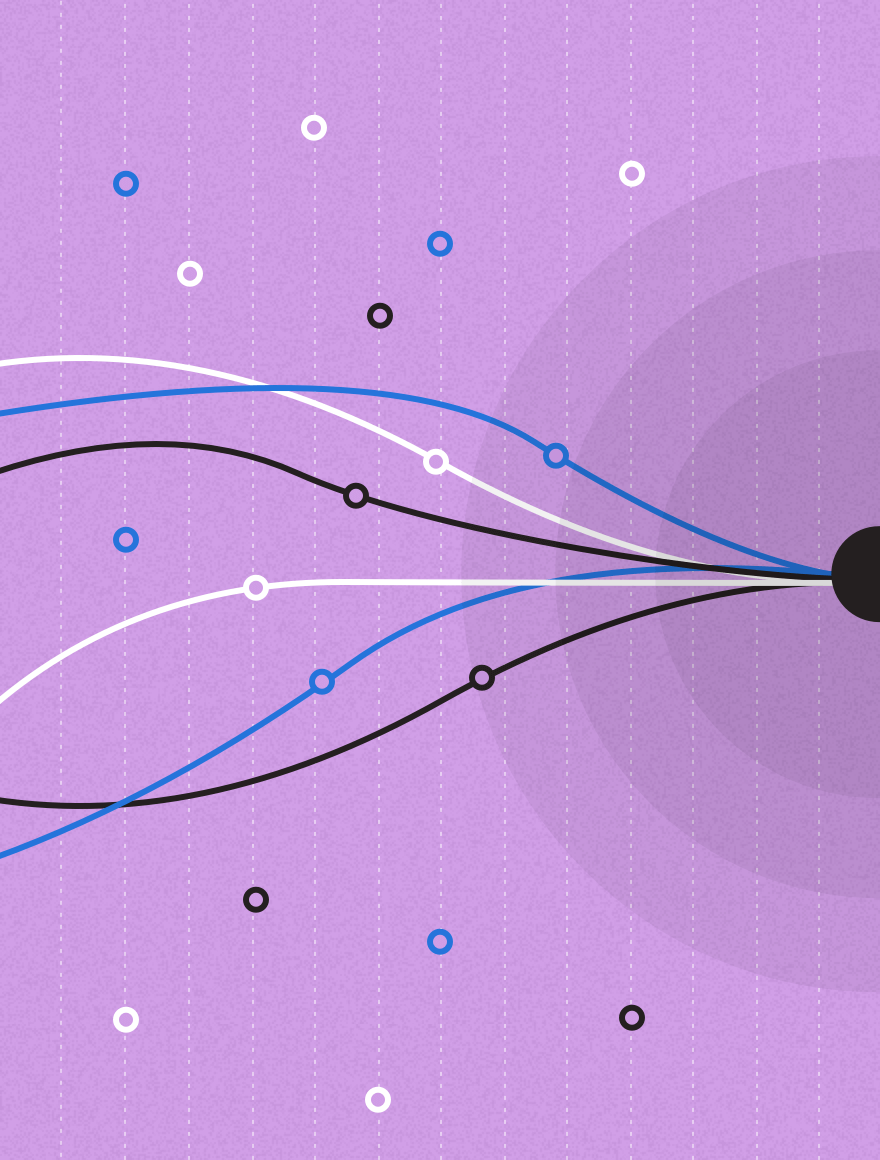Over the last posts I’ve written a lot about how to develop a business relationship strategy. You can see those posts here: 5 Key Relationship Questions, #1: Who Matters?, #2: How Do They Think?, #3: What is your Current Relationship?, #4: What is the Relationship Gap? and #5: How to Bridge the Relationship Gap.
Unfortunately, there is an increasing trust deficit in the world and trust is critical in any relationship.
The 2017 Edelman Trust Barometer reveals that trust is in crisis around the world:
The general population’s trust in all four key institutions — business, government, NGOs, and media — has declined broadly, a phenomenon not reported since Edelman began tracking trust among this segment in 2012.
THE DECLINE IN TRUST IN INSTITUTIONS

In many cases, companies and governments have defaulted on their obligations to customers and citizens, who feel ignored, poorly treated, and perceive that their concerns are rarely heard. In Account Planning in Salesforce, I examined the factors at the crux of sustained customer relationships and referred to this deficit in trust as the ‘Trust Default.’
You have to counter the Trust Default. If you want to build a long-term customer relationship you need to develop a deep level of trust with that customer. Customer acquisition is easier when you are starting from a foundation of trust. Once you have a customer, converting that customer to a loyal customer will happen only if the customer feels that she can depend on you. Unless you achieve that level of trust your customer will quickly become a former customer. Trust is the fulcrum upon which every customer relationship pivots. Trust is a valuable currency that must be earned but never spent. Trust is built one step at a time, and unless protected, can be blown away in a moment.
There is cause for considerable concern that people’s use of the Internet is a major contributor to the Trust Default. When the Internet was designed, it was not with an eye to the trolls and the abusers. As Vinton Cerf, one of the creators of Internet protocols, put it: “We didn’t focus on how you could wreck this system intentionally.”
According to Pew Research, when looking at trust in the Digital Age, the future of trust is uncertain. Six themes emerged from their extensive research:
- Trust will strengthen because systems will improve and people will adapt to them and more broadly embrace them.
- The nature of trust will become more fluid as technology embeds itself into human and organizational relationships
- Trust will not grow, but technology usage will continue to rise as a ‘new normal’ sets in.
- Some say blockchain will help; some expect its value to be limited.
- The less-than-satisfying current situation will not change much in the next decade.
- Trust will diminish because the Internet is not secure and powerful forces threaten an individual’s rights.
The Internet has allowed for entirely new kinds of relationships and clusters of communities in which trust must be negotiated and developed in unfamiliar ways with unknown entities potentially doing nefarious things with our private information. In a world exploding with information of uncertain provenance, the Internet acts as a conduit for data compromise, scams and bad behavior. None of this causes our potential partners in business to default to a trusting relationship – hence the Trust Default.
The opportunity is for those who promise, exhibit and exemplify good behavior to rise to the very top in a world where increasingly the winner takes all. That’s another reason to pursue Trusted Advisor status with your customers.
This first appeared in my latest book: Digital Sales Transformation in a Customer First World.



